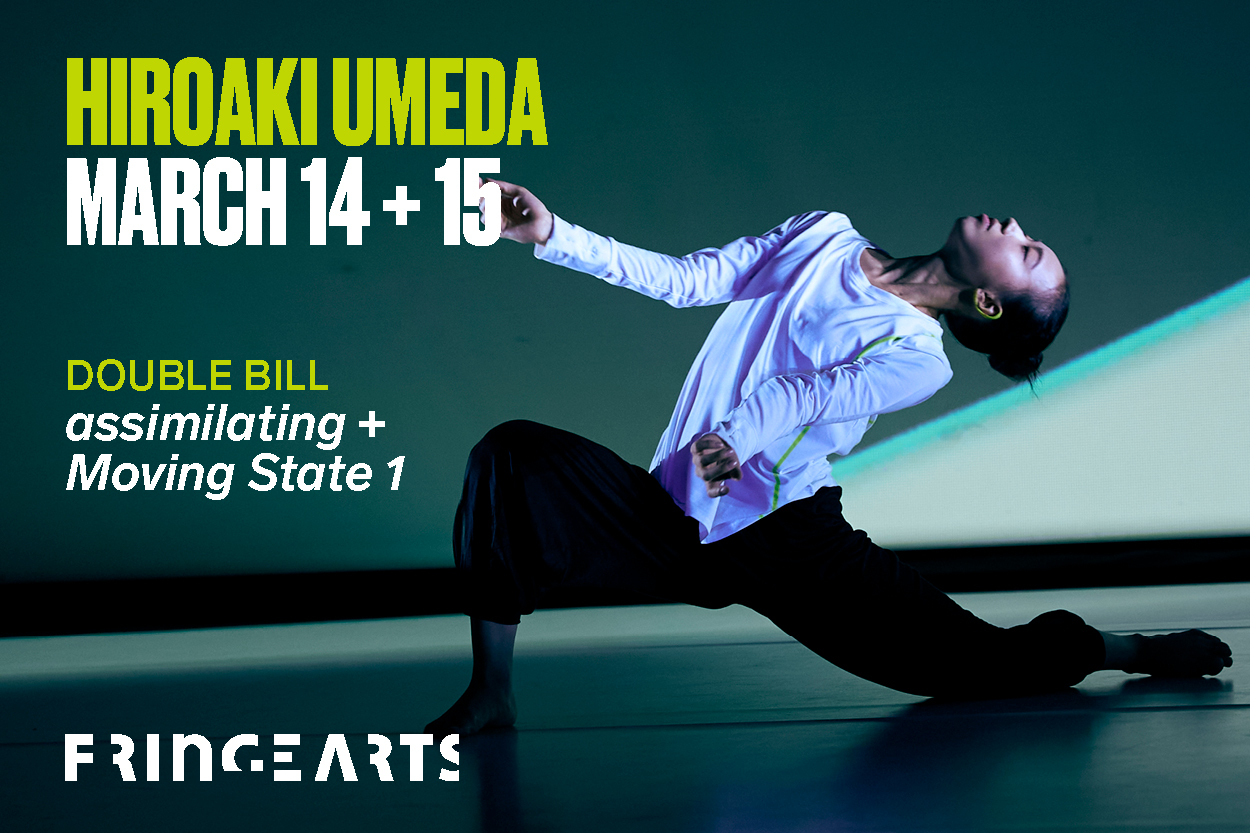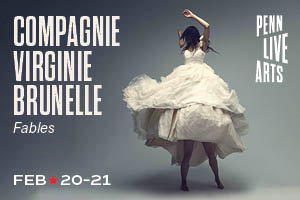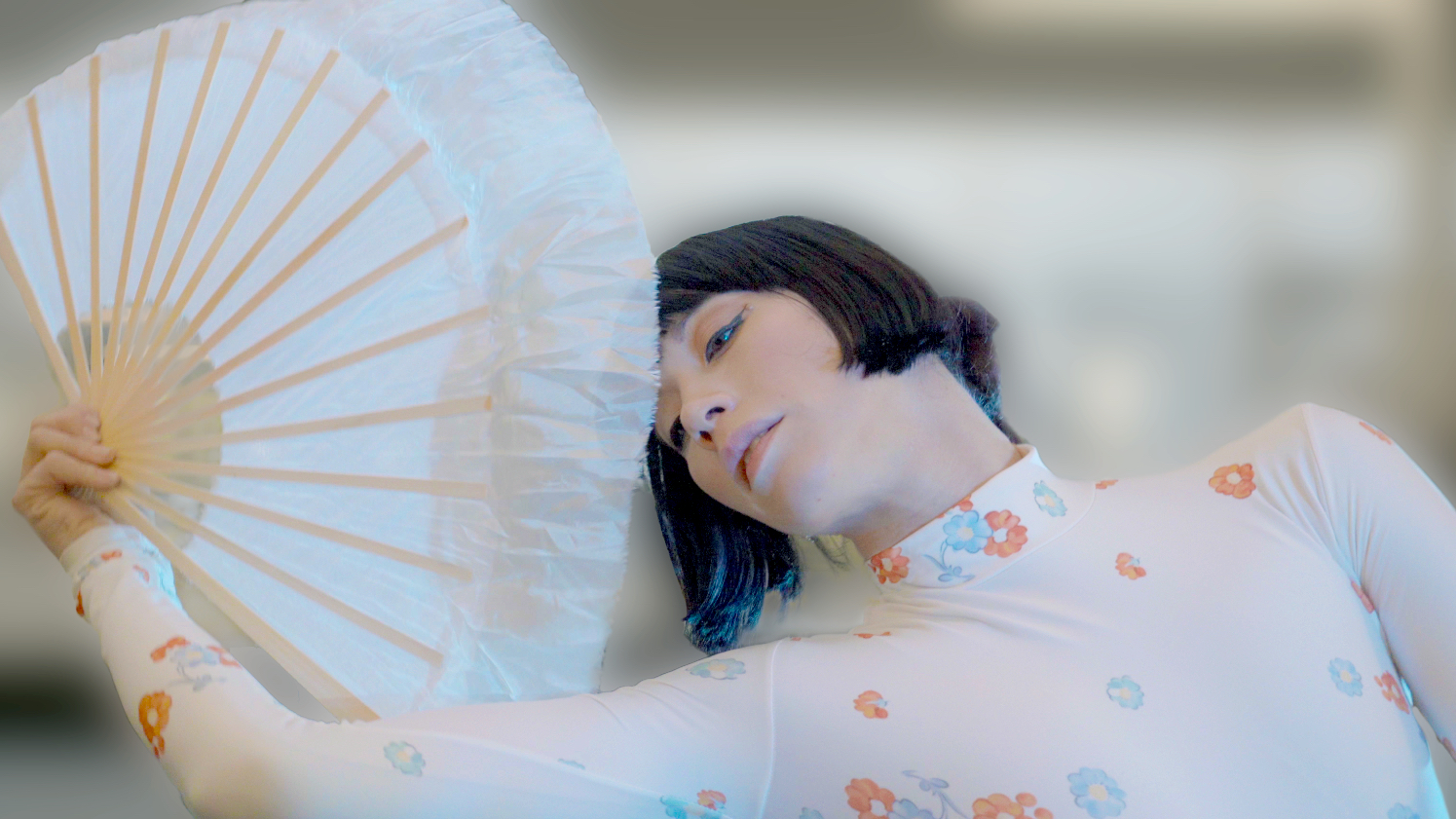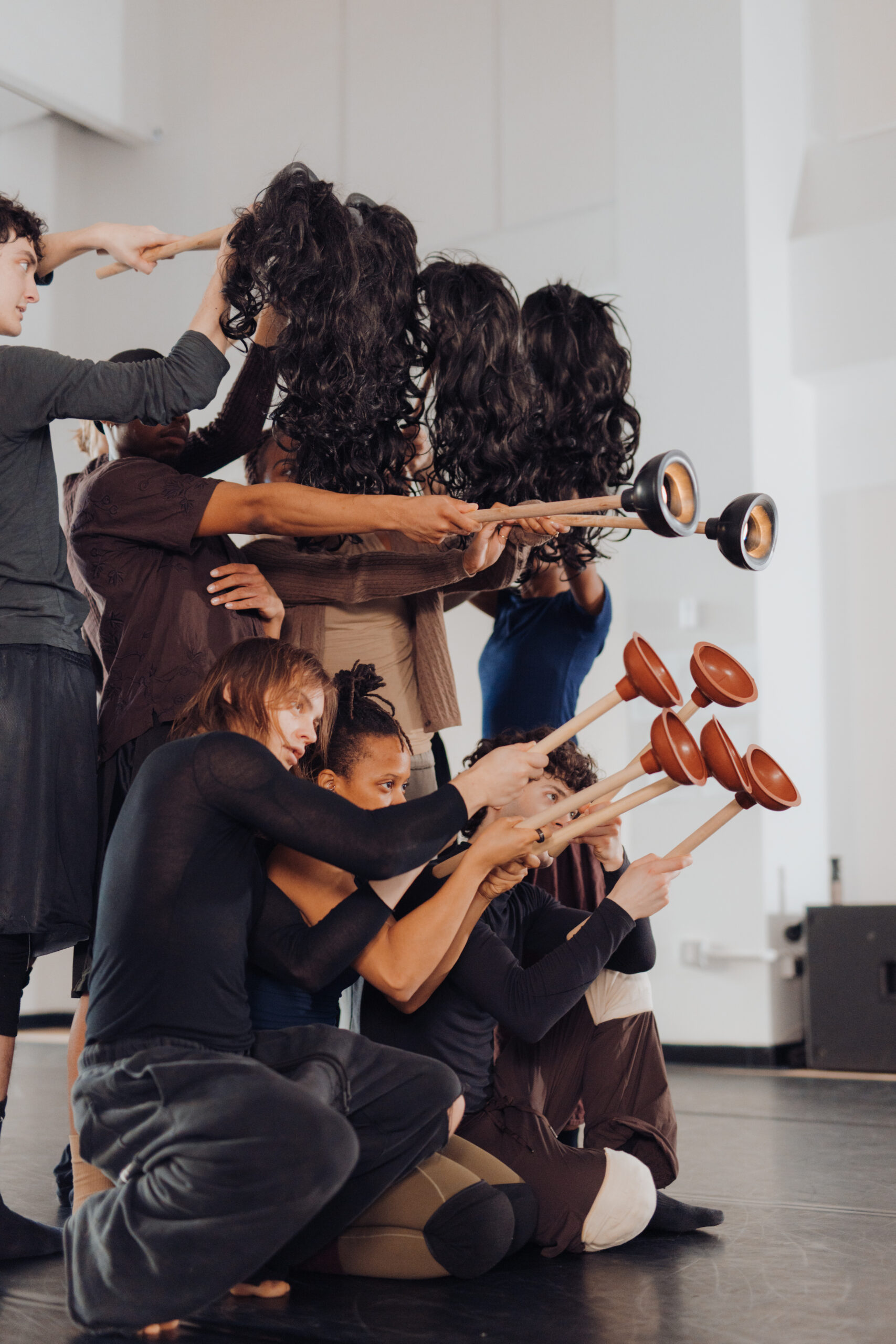In a quest to reach new audiences for performing arts in Philadelphia, Theatre Philadelphia and thINKingDANCE are joining forces and exploring how dance writing and discourse can provide new perspectives on theatre. Beginning May 2018, tD writers will be lending their varied backgrounds, interests, and approaches to criticism to professional works of theatre in Philadelphia. Let us know what you think in the comments!
Draped in robes, the cast of eight rides the sound of blowing wind into the chapel of St. Stephen’s Episcopal Church. They assemble like a choir, plié slowly, and sing in a tongue that rings ancient and sad. A fiddle’s cry accompanies the small oscillating fans they turn upon us. As clarinet, tambourine, and accordion join in, the air turns festive. They link arms and dance in celebration to Klezmer music.
“I want you to see me paired like an animal boarding the ark.”*
A young woman nervously broaches the subject of her girlfriend and her orientation—gay, not gay—to her bubbe. She slips in the absence of grandchildren as an afterthought, but it lands like a bomb. A rabbi instructs a pre-pubescent boy on folding a slice of deli meat, the technique a lesson in the rippling, domino effect of ritual. A grandmother implores her bubbeleh that they “ENJOY IT!” A hipster attempts to assuage his bootstrap-pulling immigrant parents that ditching grad school for laboring on an organic farm is an act of love, approximation. A Coney Island-bound elder incites envy, a desire for the closure of old age, with the multitudes in his smile. A modern woman angrily recites the myriad types of “unclean” female blood according to the Torah.
“How do you inherit what you’ve never met?”
Local playwrights collective Orbiter 3 formed to self-produce theatre that might not otherwise find a home, over three years, before disbanding and documenting their project. L M Feldman’s A People, the group’s seventh and final production, distills the conundrum of contemporary humanity through the prism of Jewish identity. Less a story than a wandering passage through ever-changing vignettes that bridge 3,000 years of Jewish history, A People probes questions relevant to us all: How do we make our way in the world, if not tethered by the gravitational force of belonging? What havoc have the passage of time, modernization, globalization, nationalism, feminism, -isms of all manner wreaked upon identity, culture, heritage? How do we reconcile our inevitable evolution and change with the thorny sociality that made (and still makes) possible our survival?
The eight actors bring to life some 88 characters with little assistance outside of simple lighting and costumes. Manipulating voice, posture, accent, and carriage, they seamlessly shift sex, age, time, and place. Actress Eliana Fabiyi doubles as musician on fiddle, alongside Larry Goldfinger on clarinet and Anastassia Vertjanova on accordion, rounding out the ensemble to ten. A magical number, we’re told: when ten persons gather in a room, the holy can happen. Indeed, A People breaks the fourth wall more than once, as the cast invites audience members into the transformative magic of live theater. They pass around platters of challah and we break bread; we share wine and jokes, receive a rabbi’s blessings, and offer cast members our shoulders to cry on.
“Making my life worth your sacrifice is a tall order.”
If the central question Feldman poses with A People is universal, her vehicle—she calls it “a mosaic play”—is utterly grounded in a specific cultural lens. Hebrew and Yiddish are peppered throughout the play, there are Jewish jokes, Brooklyn and off-the-boat Eastern European accents, the joy and sorrow of Klezmer. That the action takes place in an episcopal church is either ironic or simply of a piece with the play’s themes. Certain facts—in particular, the Holocaust and the Israeli occupation of Palestine—render the question of cultural survival especially potent and the tensions between generations and points of view especially charged. But the format of the play ensures that each piece or story stands on equal footing.
Feldman’s dialogue is simultaneously tender and sharp—and this heightens the poignancy of dilemmas that are both familiar and unanswerable. Even as the myriad pieces pile on, recent events speak to the well’s depth in terms of fodder: the desecration of an Israeli flag in Philadelphia, the rise of anti-Semitism in the U.S. and worldwide, protests against Philadelphia Orchestra’s upcoming tour of Israel; the slaughter of more than 50 Palestinians at the Israeli border. Also notable is the diversity in a standout crew of ten. I can’t help but reflect on the recent uproar over People’s Light’s deliberately multi-racial production of The Diary of Anne Frank. With its very format—eight actors become nearly 90 characters in just as many minutes—A People implicitly interrogates certain debates around representation, “realistic” casting, cultural visibility and erasure, even as it explores the related, unwieldy question of the Holocaust’s legacy.
“Try some leeches… Have some babies. We’re a dying race.”
Stooped beneath a lavender housecoat and a lifetime of trauma, crippled by her own endurance, a lone ancestor wants nothing more than to be left behind a fortress of deadbolts. Another chastises the banal worldliness of the young, for whom religion, diet, and belief systems are opportunities for cultural tourism, seemingly at the expense of tradition. Brief cameos by Anne Frank, Moses, Martin Buber, and other famed Jews of yore remind us that we all exist “in relation,” even as we witness “the other” and modern life draw younger generations from their ancestors’ path for reasons that are more understandable (vaccinations) and somewhat less (Christmas).
Feldman calls the original keepers of the Torah, who passed on the word of their god via oral tradition, “geniuses of memory and contradiction.” A People explores the maddening contradictions of culture with so much humanity and humor, it might make you nostalgic for your own People, or leave you feeling a bit more generous, openhearted towards the inevitable losses and gains that life ensures.
*Italicized sentences are quotations from the play
A People, Orbiter 3, St. Stephen’s Episcopal Church, May 16-June 2
To join the conversation, follow thINKingDANCE and Theatre Philadelphia online and on social media to read, share, and comment.






